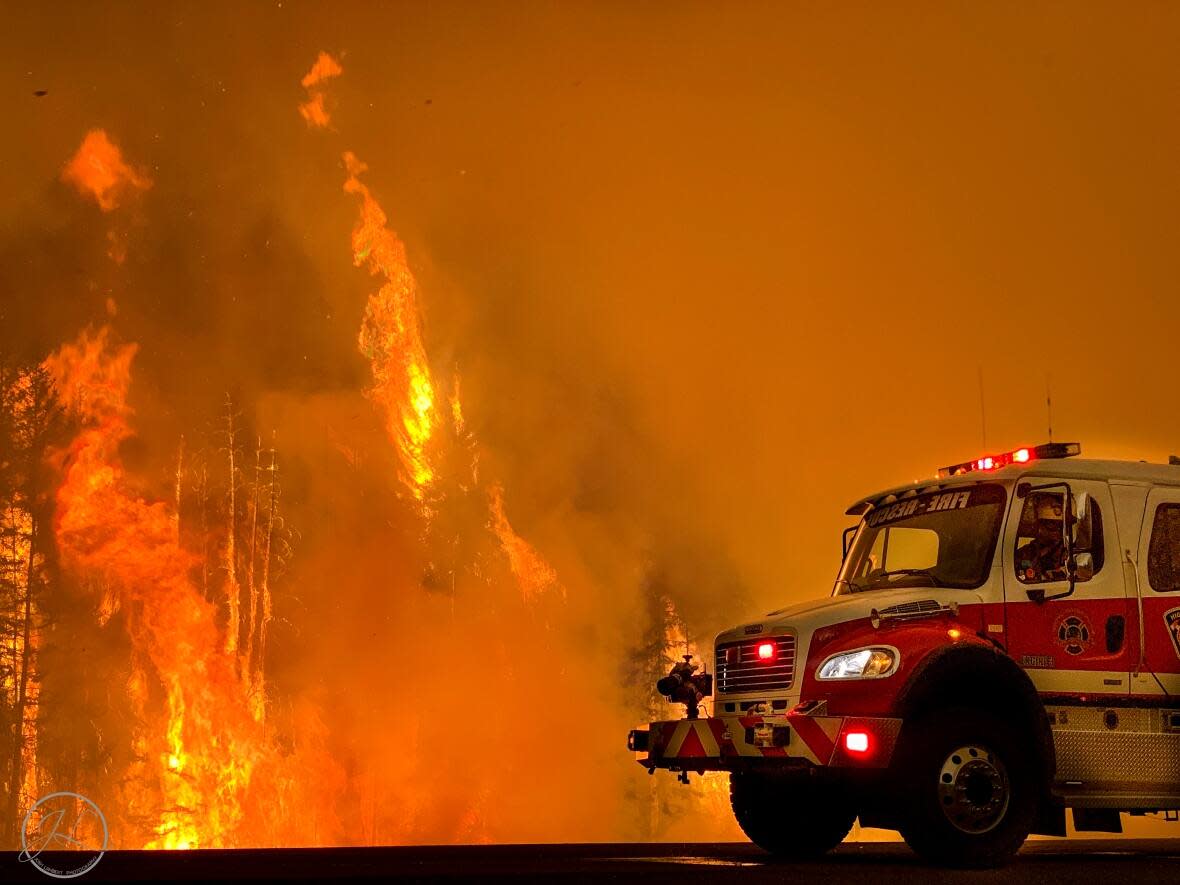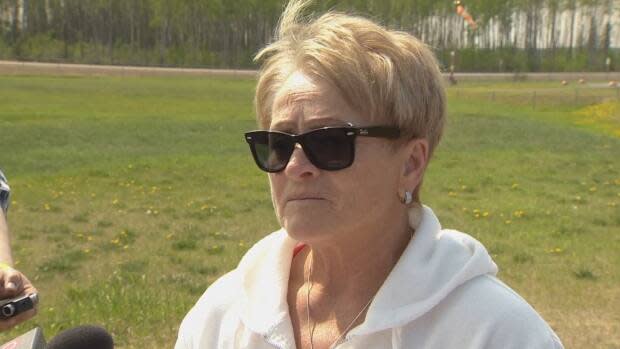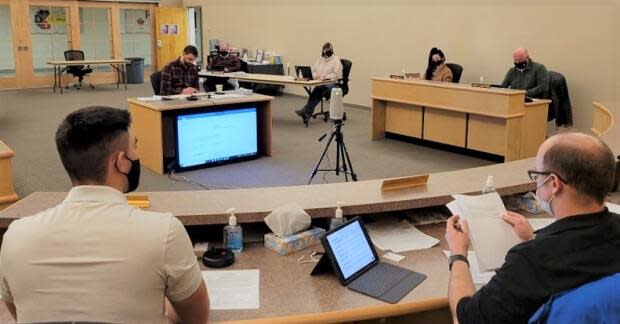Town of High Level still waiting for Alberta government to pay $2.6M for 2019 wildfire costs

After racking up $2.6 million in debt from fighting a wildfire more than two years ago, the northern Alberta town of High Level says it has been shouldering costs that should be the provincial government's responsibility.
Mayor Crystal McAteer told CBC News on Friday that protecting High Level and other communities from the Chuckegg Creek wildfire cost the town more than $10 million. The town borrowed the money to pay for firefighting crews, equipment and other expenses.
A week after the fire broke out, in May of 2019, the town started submitting its costs to the province, expecting repayment through the Disaster Recovery Program (DRP).
McAteer said the province paid back a lot of the money quickly but the town has been waiting more than a year for the remaining chunk. Meanwhile, interest payments and human resources fees have exceeded $600,000.
"$2.6 million to a community our size is a huge deal," she said. The small town had a population of 3323 residents in 2020.
"A lot of projects don't get done when you're still owed that amount of money," McAteer said.

About 740 kilometres northwest of Edmonton, High Level is surrounded by the boreal forest and its council has an annual budget of $12-$20 million.
The debt is affecting the town's borrowing power, McAteer said, as well as plans for a multipurpose evacuation centre.
McAteer said that in the past, the Office of the Fire Commissioner covered emergency expenses for other municipalities affected by wildfires but in 2019 High Level was asked to bear the cost because the provincial budget had not yet been passed.
The Chuckegg Creek wildfire forced thousands of people from their homes in northwestern Alberta and destroyed more than a dozen homes on the Paddle Prairie Métis Settlement.
By late August of 2019, the fire was under control and after burning more than 331,000 hectares, the province declared it was out in October of 2020.
The town has asked the government for the remaining funds, reimbursement for service costs and post-emergency funding.
"It is sadly a slow process," Peace River MLA Dan Williams told the town council in a meeting on Monday.
Williams told council he had spoken with Municipal Affairs Minister Ric McIver about the issue earlier that day and would bring it up with him again.

He said cash flow problems and lost opportunity costs have become a problem for multiple municipalities, including the Paddle Prairie Métis Settlement, Mackenzie County and the County of Northern Lights.
"I do not understand why," he said. "The best understanding I have is that, like I said, forensic level of accounting, and they're going through this in a very nuanced way."
"We recognize that the DRP process can seem to take a frustratingly long amount of time and the Minister wholeheartedly sympathises with those who have been impacted by natural disasters and their aftermath," said McIver's press secretary Greg Smith.
He said the remaining amount is being reviewed to ensure costs meet eligibility guidelines.
He said disaster recovery programs are typically open for five years to allow for multi-year construction projects to be completed and that before the provincial government can receive Disaster Financial Assistance Arrangements from the federal government, each program is independently audited and audited by Public Safety Canada.
The provincial government anticipates the balance will be paid in full by June 30.

 Yahoo Movies
Yahoo Movies 
